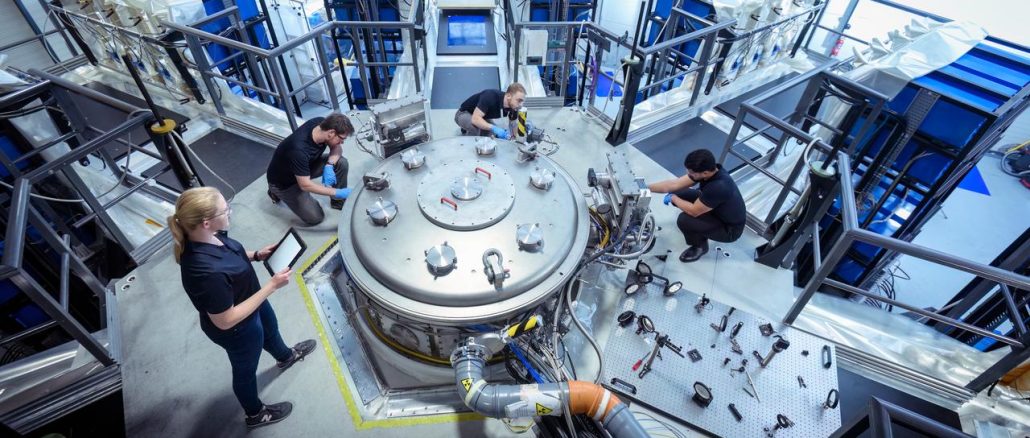
Germany’s Commitment to Nuclear Fusion Research
The German government has announced plans to invest more than 1 billion euros in research and development of nuclear fusion over the next five years. German Education and Research Minister, Bettina Stark-Watzinger, believes that fusion offers a promising solution to the world’s energy problems.
Fusion: The Future of Clean Energy
Unlike traditional nuclear power plants, fusion reactors work by joining atoms together rather than splitting them. If a power plant can be built that produces more energy on a large scale than it consumes, fusion could potentially become a clean and sustainable source of nuclear energy.
While the technology is not yet profitable on a commercial scale, recent breakthroughs have showcased its potential. Earlier this year, scientists in the United States achieved a major milestone by successfully releasing more energy through nuclear fusion than was used to initiate the reaction.
Germany’s Role in Fusion Energy
Minister Stark-Watzinger is adamant that the question is no longer whether fusion power stations will become a reality, but rather whether Germany will play a leading role in this emerging field. She stated, “That is my goal.” The minister aims to collaborate with researchers and industry experts to develop a nuclear fusion power station as soon as possible.
This commitment to fusion research comes after the closure of all German nuclear power plants in April of this year. Chancellor Olaf Scholz has emphasized that Germany will not reopen these old plants, calling it “beating a dead horse.”
A Sustainable Future
The potential benefits of nuclear fusion as a clean and sustainable energy source are immense. Unlike traditional nuclear power, fusion produces little to no long-lived radioactive waste and does not emit greenhouse gases. If successful, fusion could play a significant role in reducing carbon emissions and combating climate change.
The Challenges Ahead
Despite its promise, nuclear fusion still faces significant challenges. One of the primary obstacles is sustaining the high temperatures and pressures required to initiate and maintain fusion reactions. Another is finding suitable materials that can withstand extreme conditions.
Furthermore, the costs associated with developing fusion power are substantial. Building a commercially viable fusion power plant requires significant financial investment and long-term commitment.
International Collaboration
The development of fusion energy is not limited to Germany alone. Countries around the world, including the United States, China, and France, are also investing in fusion research. International collaboration and knowledge sharing will be crucial in overcoming the shared challenges and advancing fusion technology.
Efforts such as the International Thermonuclear Experimental Reactor (ITER) project, which involves 35 countries working together to build the world’s largest fusion experimental facility, exemplify the collaborative nature of fusion research.
The Future of Energy
Nuclear fusion has the potential to revolutionize the energy landscape. If successful, fusion power could provide a virtually limitless and sustainable source of clean energy for future generations. However, it is important to note that commercial fusion power plants are not expected to be operational for at least a few more decades.
As countries like Germany continue to invest in fusion research, the goal of achieving a breakthrough in fusion technology inches closer. The path to fusion power is a challenging one, but its potential rewards make it a journey worth pursuing in the quest for a cleaner and more sustainable future.
Investing in the Energy of Tomorrow
The German government’s billion-euro investment in nuclear fusion research demonstrates its commitment to exploring innovative and sustainable solutions for the world’s energy needs. By prioritizing fusion technology and actively participating in global research efforts, Germany is positioning itself at the forefront of the clean energy revolution.
As the world faces the urgent task of finding alternatives to fossil fuels, investing in nuclear fusion represents a significant step towards achieving a more sustainable and environmentally friendly future.

Be the first to comment